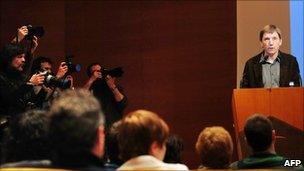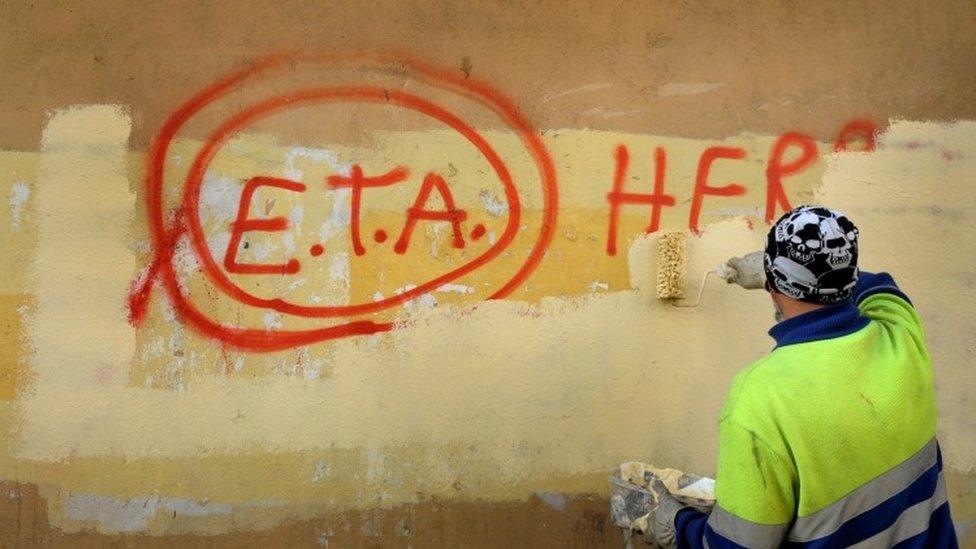'New' party formed by Batasuna rejects Eta violence
- Published

Pro-independence figures announced that the new party was explicitly rejecting violence
The banned Basque separatist group Batasuna has launched a new party that rejects the use of violence.
Batasuna was outlawed by the Spanish courts in 2003 because of its links to Eta, whose independence campaign has cost more than 800 lives.
The government has welcomed the step but says the party's legality should be considered by judges.
Eta announced a permanent, verifiable ceasefire last month and Batasuna wants to contest elections in the spring.
Batasuna itself has in the past said it opposes violence but, in an announcement in Bilbao on Monday, prominent separatist Rufi Etxeberria emphasised that the new party rejected and opposed the use of violence "including that of Eta".
"It is therefore an explicit rejection of violence," he said.
No name has yet been put forward for the new party but Mr Etxeberria said its statutes would be presented to the Spanish interior ministry on Wednesday.
He was joined at the news conference by at least 10 pro-independence activists, among them former Eta militant Eugenio Etxebeste.
'No free concession'
The government has always insisted that Batasuna reject Eta to have legal status.
Interior Minister Alfredo Perez Rubalcaba said on Monday "it is the first time in many years of violence that the outlawed Batasuna has expressly rejected Eta violence".
The group had not made "a free concession", he added, but had acted because of a "firmness shown by state institutions and by Spanish and Basque society".
He said Batasuna's credibility had all but run out because of the many years of violence.
It will be up to the Spanish courts to decide whether the new party's statutes comply with the law.
The main opposition Popular Party has warned that the proposed new party is a "trick" and has said Batasuna should only be allowed to return to politics if and when Eta is disbanded and disarmed.
Responding to Eta's ceasefire declaration last month, Prime Minister Jose Luis Zapatero said there would be no dialogue and called for "more forceful and definitive" steps.
His scepticism is widely shared in Spain because an earlier "permanent ceasefire" called by Eta in 2006 held for just nine months before a bomb attack in an airport car park killed two men.
- Published11 January 2011

- Published8 April 2017
